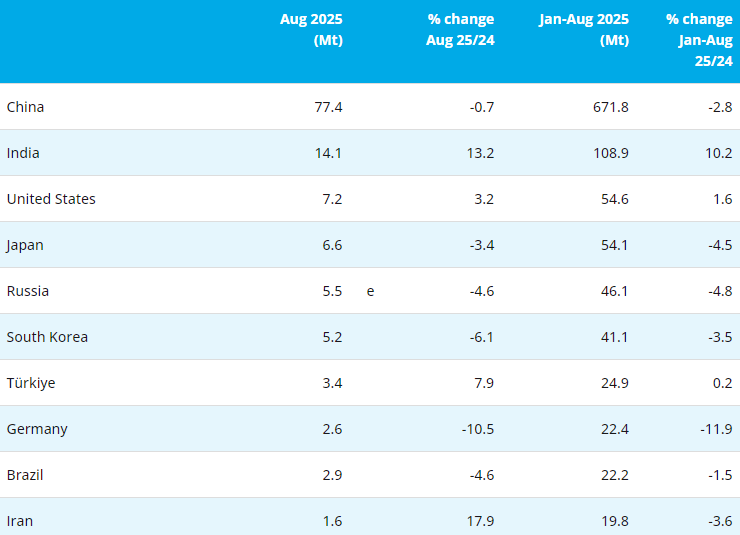The global financial crisis has hit the Russian economy after 10 years of expansion averaging almost 7 percent. Although recent statistics show signs of stability, it is believed that economic growth is unlikely to resume soon.
Russia's gross domestic product (GDP) contracted by 9.5 percent year-on-year in the first quarter of 2009, according to the Federal State Statistics. In the same period, industrial output tumbled 14.3 percent and the foreign trade surplus plunged 43.6 percent.
The Economic Development Ministry has downgraded its GDP forecast from a 2.2 percent decline to a 6 percent shrinkage in view of the deteriorating economic indicators.
The government, meanwhile, has introduced a series of measures to ensure social stability and an improvement to the economy.
It has spent 1.4 trillion rubles (46.7 billion U.S. dollars) from its oil funds to carry out the anti-crisis measures. Taking money from other sources into account, Russia will spend 3 trillion rubles on its economic stimulus package.
In an anti-crisis plan released in early April, the government pledged to fulfill its social obligations, expand domestic demand to ensure sustainable economic development, implement long-term national modernization projects, establish a strong financial system at home and pursue responsible macro-economic policies.
The State Duma, the lower house of parliament, approved a new federal budget for 2009 which envisions a deficit of about 7.4 percent of GDP, the first since 2000.
Education, healthcare and pensions take priority over others in the budget, and 17.5 percent of expenditure is earmarked for the real economy. The government will spend 120 billion rubles in providing social security for the unemployed and stabilizing the labor market. A sum of 43.7 billion rubles will be offered to regional labor markets.
Russia's central bank has cut interest rates on three occasions since April in an effort to channel funds into the real economic sectors, reducing the refinancing rate to 11.5 percent from 13 percent.
Russia's economic situation is complex thanks to the financial meltdown, but it is still under control, Prime Minister Vladimir Putin said in May. "To ensure macro-economic stability and a balanced budget is a crucial prerequisite for an effective implementation of social and economic tasks now and in the post-crisis era," he said.
Some of the government's anti-crisis measures have taken effect. President Dmitry Medvedev, at the St. Petersburg Economic Forum in early June, said the government had managed to stabilize the domestic financial system in recent months.
Russia's foreign currency reserves, the world's third largest, advanced to about 404 billion dollars after the government used more than a third of it to stem the ruble's depreciation since August.
The ruble has strengthened to 31 per dollar lately from a record low of 36 in March. The stock market has rallied because of the hike in oil prices and an inflow of foreign capital. The benchmark Russian Trading System (RTS) index and the Moscow Interbank Currency Exchange (MICEX) index have increased about 60 percent since the beginning of this year.
Russia's inflation rate was 6.2 percent in the first four months of this year, one percentage point lower than the same period a year ago. Officials have estimated that this year's inflation rate would stand at 13 percent, 0.3 percentage point lower than last year.
The economic development ministry has predicted that the economy would rebound provided the government's assistance is allocated appropriately and oil prices continue to rise. The revised budget is based on a 41-dollar per barrel price for the Urals crude, the country's chief export earner, but oil prices have soared above that level already.
Russia has also committed itself to future development.
A committee on economic modernization and technology development was formed by Medvedev to help the commodity-based economy evolve into an innovative one. In late May, the president also presented outlines of the main budget policy for 2010-2012 in the hope they would become a tool for the government to realize its long-term goals. The priorities include fulfilling social spending commitments, reducing the budget deficit and raising the level of undistributed reserves.
"The leading financial markets have shown signs of recovery, prompting some analysts to conclude that the crisis has hit its bottom and its most difficult phase is coming to an end," Medvedev said in his opening remarks to the St. Petersburg Economic Forum.
"In my opinion, it is too early to open the champagne," he said.
The president said the crisis had indicated Russia's excessive reliance on energy exports and its under-developed financial system, adding that the country also faced major challenges such as soaring inflation and a lack of long-term funds. –Xinhua
Copyright © 2013 Ferro-Alloys.Com. All Rights Reserved. Without permission, any unit and individual shall not copy or reprint!
- [Editor:editor]



 Save
Save Print
Print Daily News
Daily News Research
Research Magazine
Magazine Company Database
Company Database Customized Database
Customized Database Conferences
Conferences Advertisement
Advertisement Trade
Trade













Tell Us What You Think